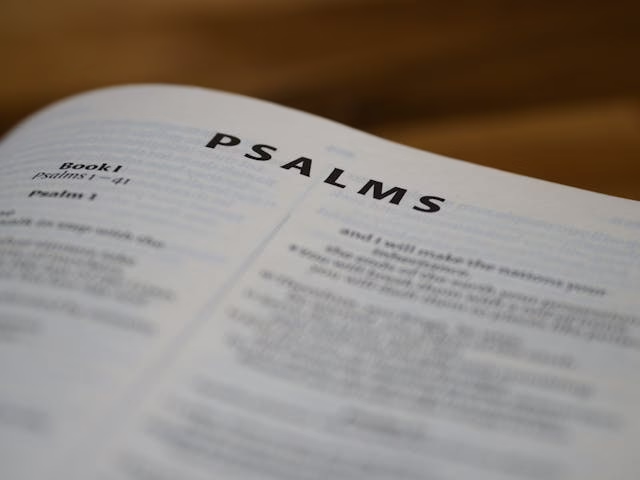One of the commitments of Holy Covenant Church is the singing of the psalms and in the sermon connected to this post several points were made regarding it. But one of the items that the message did not address was the presence of what is often called the imprecatory psalms. These are the psalms which call upon God to “break the teeth” of his enemies or to make them “turn into slime like snails” (Ps. 58:6, 8). Or consider Psalm 137, where the psalmist addresses Babylon with the following: “Happy is the one who takes and dashes your little ones against the rock” (v. 8, 9). What are we to do with these psalms, is it appropriate to sing them?
I admit that it can be hard to wrap one’s mind around praying and singing these words. Noted apologist C.S. Lewis was most assuredly against singing them. In his book Reflections on the Psalms, he dubbed them: “devilish,” “diabolical,” “vindictive,” and even “unfit and should not be condoned”. Is he right, do they still have a place on the lips of God’s people now? I would argue that they still have a place because like the other psalms, they perform a didactic or teaching function in the life of God’s people. What is it that they can teach us?
The first thing that we must start with is the fact that the imprecatory psalms are the word of God. The biblical writers, for example Paul, when he referenced the OT Scriptures did not say that all of them were able to make one wise, with the exception of the imprecatory psalms. In fact, when he addresses unbelieving Jews in Romans 11, he cites from Psalm 69, an imprecatory psalm. But not only does Paul do this in revealing how he was unashamed of them, our Lord himself uses a portion of Psalm 35:19, another one of the imprecatory psalms. So we must start with the fact that they are the word of God and as such they are profitable (2 Tim. 3:16).
Keeping with the mindset that they are able to teach, these psalms establish that there are such things as enemies. This seems like a minor point, but christians have largely forgotten or are unwilling to talk about real enemies; enemies who persecute God’s people, engage in evil practices, and are unjust in their dealings. These psalms are like jolts of electricity to our senses and they cause us to remember this truth. This is not a point of christians being vindictive or petty, rather an acknowledgment of what has been, is, and will be until Jesus returns.
In addition to teaching us about enemies and this is the major point, they teach us about the nature of our God. The fact that we can appeal to God to judge the evil and the unrighteous, reminds us of his holiness. They are a call for God to act, which fits with the truth that vengeance is his and his to repay. Additionally when we sing them to God, we are appealing to God’s covenant love for his people. The basis for God to intervene on behalf of his people is not necessarily our loveliness, nor is it our perfect love for God and neighbor, rather it is a call for him to act on behalf of his people because of his love for us.
In the end, like the rest of the psalms, imprecatory psalms point us to Jesus. He prayed and sang them, but he also lived them out in his life. Again, quoting from Psalm 35:19, “he was hated without cause and suffered at the hands of wicked rulers” in order to bring salvation. Amidst his call for vindication, God resurrected him from dead and installed him upon the throne. (Ps. 2). And so now, we follow in line with him and sing about God further bringing forth his kingdom on earth, as it is in heaven. This is a call for God to vindicate his holiness, defend his people, and uplift the work of Jesus.

